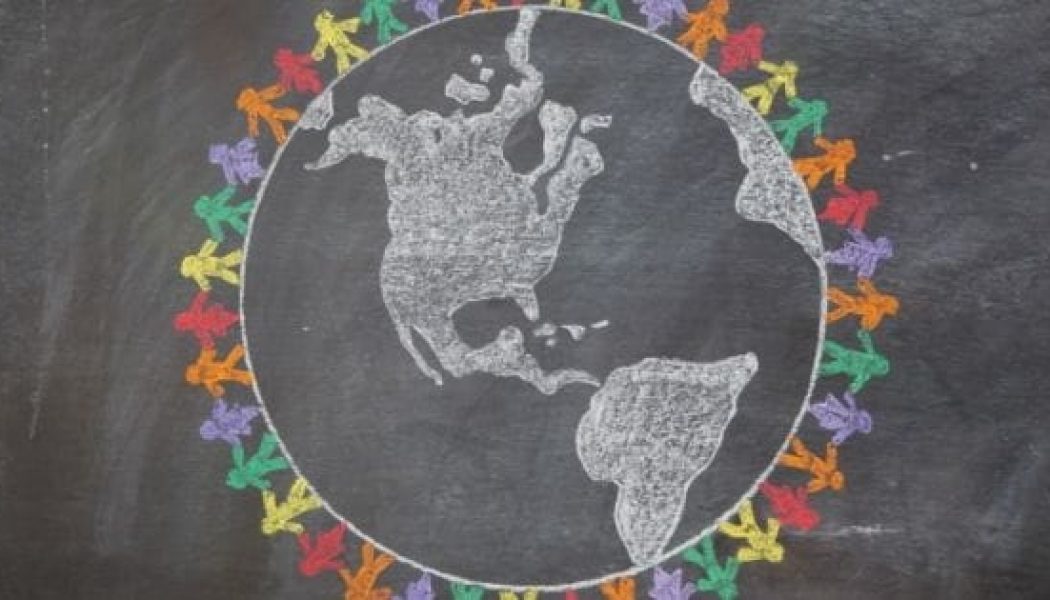Blog
What Keeps Young People Following Christ as Adults?
Ask any Christian parent what their dying wish would be, and they will tell you, “That my children will love and follow Jesus.” Unfortunately, many parents face the unbearable experience of watching their children leave the faith they grew up learning about every week in Sunday school and youth group. Things like frequent attendance at youth group, being involved in a small group, or even going on missions trips provide no guarantee that someone will continue in the faith. Indeed, I estimate that half of the students that went on the youth missions trip my senior year of high school are no longer following Jesus. But there some commonalities (which I’ve noticed in 20 years of experience in youth ministry) that young people who do keep following Jesus share. Just one qualification: what I w...
3 Reasons to Love James
In many ways, the book of James has not had an easy journey into the New Testament canon. We have few references to it in the earliest stages; it was doubted by some church fathers, and, of course later, Martin Luther himself referred to it as “an epistle of straw.” However, we should be immensely grateful that God has preserved this book for us. Despite its detractors, the book of James provides essential theological balance for the key doctrinal debates in the church today. Several key contributions: 1. James reminds us that one can offer extended moral exhortations without being a “moralist.” In an effort to avoid the charge of “moralism,” many modern preachers hesitate to offer extended moral/ethical exhortations to their congregations. Indeed, sermons often focus on how the ...
3 Reasons We Should Stop Calling People Heretics
“You’re a heretic.” That’s a powerful claim, one with the ability to destroy. And like all weapons of mass destruction, it should be used with extreme caution. A recent blog post highlighted 7 Heresies Inside the Church. As I read through the post, I noticed two things. Yes, the author correctly identified seven dangerous ideas that the church needs to watch closely today. But there isn’t a single heresy among them. I think that’s a problem. Calling something a heresy when it isn’t contributes to other serious problems for the church today. To see why, let’s first take a look at what a “heresy” is. Then we can consider some reasons why it’s dangerous to label something as a heresy when it’s not. What Is a Heresy? Defining exactly what constitutes a heresy is harder than it seems. Some thin...
Honoring St. Patrick
We live in a time of the anti-hero. Too often, the good guys are the bad guys and vice versa. Celebrities are often held up as heroes, until we learn too much about them. But to see a true hero, look at the real St. Patrick, who has a day dedicated in his honor. Unfortunately, many people only observe his holiday, March 17, by drinking themselves silly, which is totally contrary to the spirit of the man who Christianized Ireland. In fact, Patrick shows what God can do through someone who is committed fully to Him. Thomas Cahill, author of the book, How the Irish Saved Civilization: The Untold Story of Ireland’s Heroic Role from the Fall of Rome to the Rise of Medieval Europe, notes that Patrick and the Irish came at the moment of a cultural cliff-hanger and played a key role in h...
Why Has Lent Become Cool with Evangelicals?
Not the Thing that Comes from Your Dryer Born in the Bible Belt and raised in an evangelical church, I didn’t know what Lent was until after I graduated from college. That was nearly ten years ago, and since that time I’ve seen an explosion of evangelical observation of Lent. I’ve seen that surge in the church where I pastor, without any promotion from me. I’ve seen the same on social media, going hardly more than two minutes without bumping into a post by a friend describing what they are doing, reading, or giving up for Lent. Of course, my congregation and my circle of friends is a limited sample. But I don’t think we need a national survey to see that among evangelicals Lent is more widely observed than ever before. As the great theologian Bob Dylan once said, “You don’t need a w...
You’re Probably More Slothful Than You Realize
When I spoke about the Seven Deadly Sins, you could see the squirming as I talked about pride, envy, gluttony, lust, anger, and covetousness. Most of us can see our pride, envy, gluttony, lust, anger, and covetousness and we feel convicted. Then I got to the sin of sloth and the group relaxed. Hardworking people who put in long hours at the office and then add on exercise, kids sports, church, and chores are anything but slothful—or so we think. Yet sloth is the defining sin of our era. It has its hooks into all of us. As scholar Mary Eberstadt wrote about sloth, “Show me a sin, deadly or otherwise, that you think is farthest away at any given time, and I’ll show you something breathing just over your shoulder with a pickax under its coat. In truth, the signs of Sloth are everywhere in our...
Five Points from the Past that Should Matter to You
The Protestant Reformation of the 16th century changed Christianity forever. Roused to action by the corruption and abuses they saw in the Roman Catholic church of the time, visionary pastors and leaders like Martin Luther and John Calvin spearheaded a movement that transformed Christianity and eventually led to the emergence of the Protestant denominations that exist today. The Reformers were guided by the conviction that the church of their day had drifted away from the essential, original teachings of Christianity, especially in regard to what it was teaching about salvation—how people can be forgiven of sin through the death and resurrection of Jesus Christ and receive eternal life with God. The Reformation sought to re-orient Christianity on the original message of Jesus and the early...
Someone Will Sin Against You Today
Growing up in North Alabama, I remember going through specific routines in the event of an emergency. I doubt there was a kid who did not know why or when you need to stop, drop, and roll. We were trained in protocols in the event of a tornado, calmly lining up in the hallway and securing our heads from potential debris. We knew how to exit the buildings in case of a fire in a single-file line to safe zones outside. All of these procedures were responses to various kinds of potential disasters we could encounter while in school. Now what, do you think, are the possibilities that I as a kid in elementary school would actually need to follow through on those drills? How often would a tornado tear through our building? How often would a fire consume the classrooms? Hardly ever, if at all, rig...
What Does It Mean to Abide in Christ?
One of Jesus’ most vivid and powerful illustrations for the believer’s relationship with him is the vine and branches. Just as branches can only bear fruit if they abide in the vine, so the only way believers can glorify the Father through fruitful lives is by abiding in Jesus. The teaching is found in John 15, where Jesus prepares his disciples for his imminent death and departure, by instructing them about their calling and mission as his disciples, and emphasizing their absolute dependence on him. As Jesus says in verse 5, I am the vine; you are the branches. Whoever abides in me and I in him, he it is that bears much fruit, for apart from me you can do nothing. Unpacking the metaphor This picture is a rich metaphor that needs unpacking. The vine is Jesus, while we (believers, disciples...
Government Coercion vs. the Christian Conscience
Several states in the U.S. are now considering legislation that would provide explicit protections to citizens whose consciences will not allow an endorsement of same-sex marriage. The bills vary by state, as do the prospects for legislative passage, but the key issues remain constant. Millions of American citizens are facing a direct collision between their moral convictions and the demands of their government. The cases are now piling up. A wedding photographer in New Mexico, cake bakers in Colorado and Oregon, and a florist in Washington State have all found themselves in this predicament. Each now faces the coercive power of the state. They are being told, in no uncertain terms, that they must participate in providing services for same-sex weddings or go out of business. The bills now ...
American Poor, the Gospel, and Social Justice
I was raised American poor. I call it American poor because the brand of poverty I lived through pales in comparison to some of the 3rd world poverty I’ve seen firsthand in India, Colombia and El Salvador. But, by United States standards, my family was poor. Although we qualified for food stamps my mom refused to take advantage of them. She felt in some weird way that this would be admitting defeat and stealing from the government. Although she should have gotten alimony from at least one of the four marriages she had experienced in her relatively young life, she didn’t get any. Our family experience was filled with deadbeat dads (whom we never saw), hard work and pressing bills. To add insult to a high possibility of injury my mom, brother and I lived in one of the highest crime rate area...
How Racial Diversity Glorifies God
There possibly isn’t a more complex yet important topic as race as it relates to the Word of God and the church. To understand our differences and why they are good, we must first understand our origin. Because of the sin of partiality and pride, it is problematic for some to truly believe the idea of racial equality. But this equality isn’t a man-made, modern, social justice theory. We aren’t arguing for something unjust. Rather, the equality of people originated from God. J. Daniel Hays wrote a compelling book, From Every People and Nation, addressing the biblical theology of race. In it he explores the origins of race and ethnicity, looking at current-day definitions, stereotypes, and poor biblical interpretation, reevaluating the concepts, and expounding Scripture. For him, and for us,...























